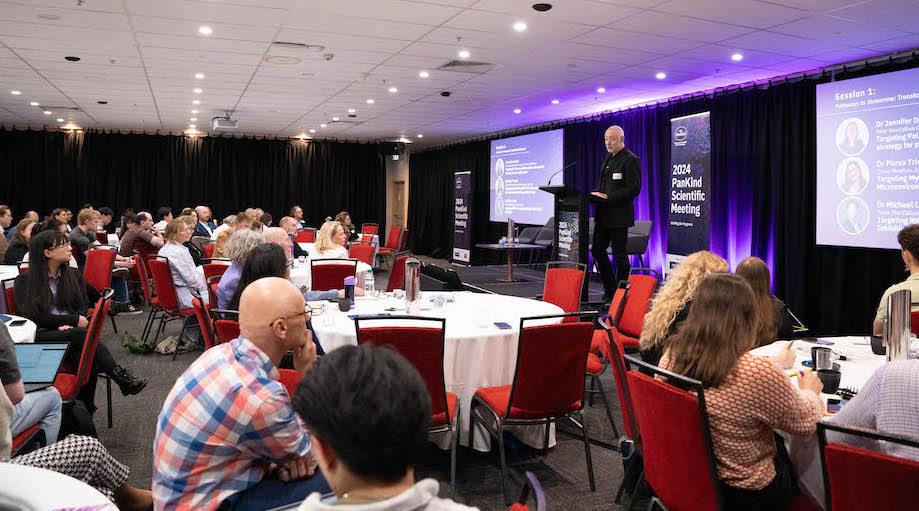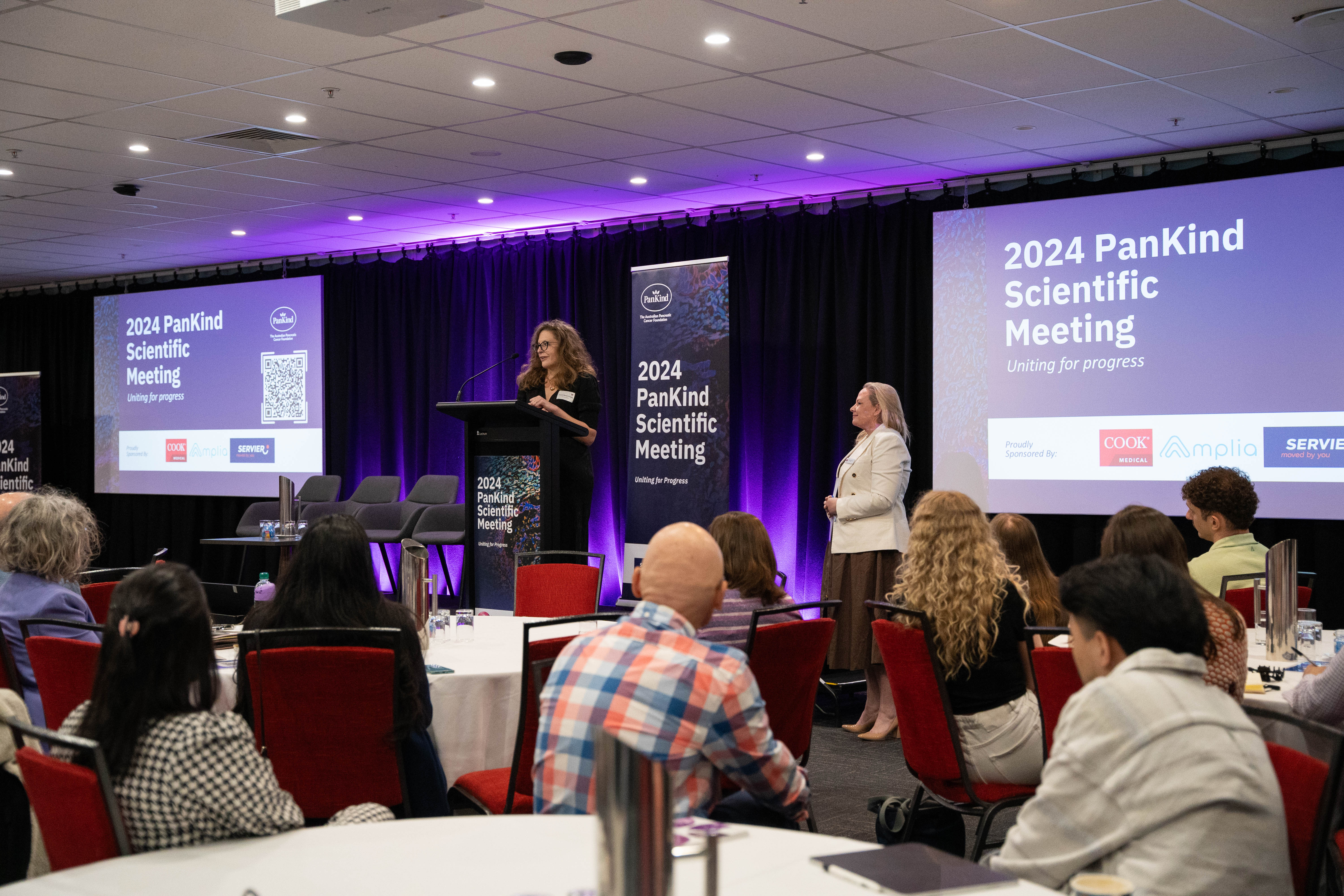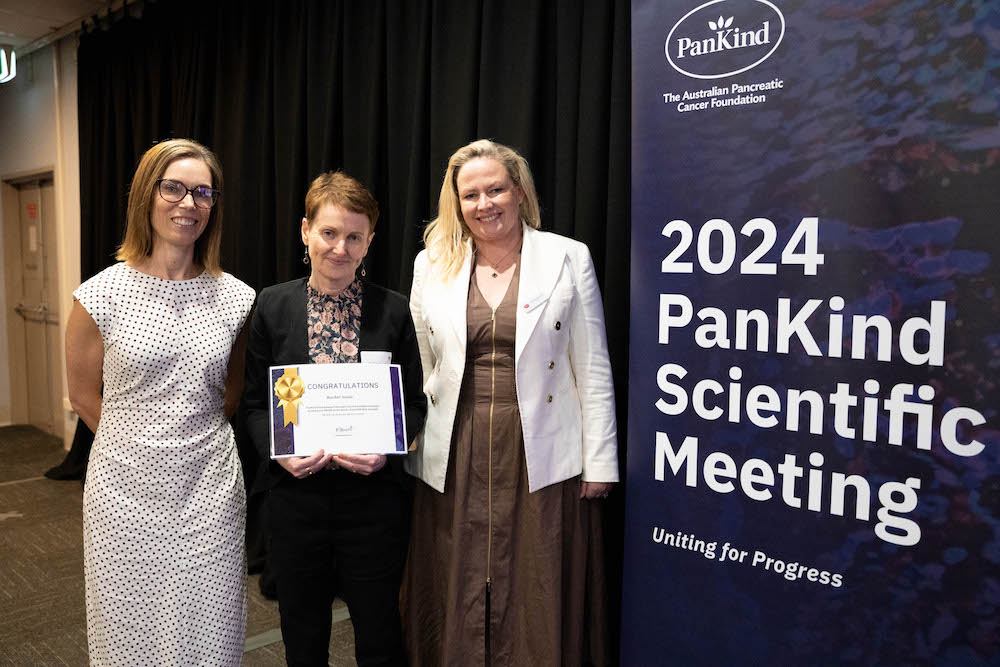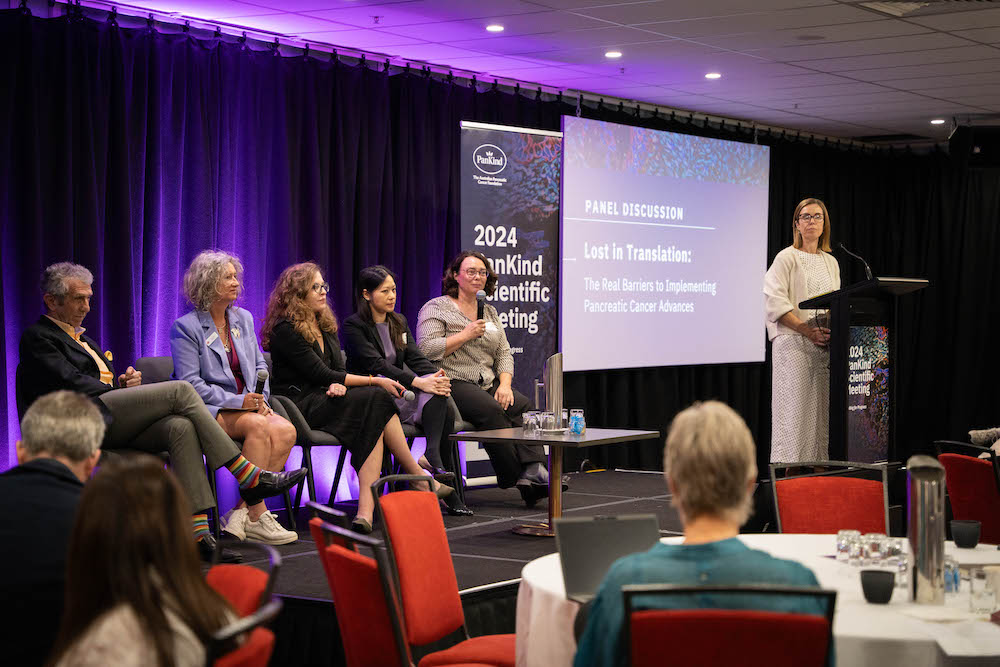PanKind's 2024 Scientific Meeting

The 2024 PanKind Scientific Meeting brought together over 120 researchers from all over the country to share advancements and insights in pancreatic cancer. Sessions focused on topics such as Translational Research, New Treatments & Targeted Therapies and Early Detection. Many of the country’s brightest minds took to the stage, discussing their research progress, challenges and emerging opportunities to shift outcomes for those affected by pancreatic cancer.
We were honoured to have Urszula (Ula) Wasko-Kornberg from Columbia University as our plenary speaker. RAS mutations have emerged as a primary target in the development of pancreatic cancer therapies, and Ula provided an in-depth view of her lab’s work on RAS inhibition and its direct clinical impact. Ula attributed the swift pace of this work, 2 years from inception to publication, to the collective efforts of a large team of investigators and coauthors. We are excited to see the continued developments in RAS inhibitors and the impact it will have on patient outcomes.

This year we introduced ‘New Concepts’, a session designed to encourage bold thinking and introduce fresh ideas, innovative strategies and emerging trends in pancreatic cancer. Five presenters shared their innovative projects, receiving live feedback from a panel of judges to further refine their work. Congratulations to Rachel Neale from QIMR Berghofer for winning with her proposal, “Screening for Pancreatic Cancer in People with New-Onset Diabetes.” Rachel will develop a feasibility study to investigate early imaging in a subset of patients with new onset diabetes. We look forward to seeing this project evolve.

A highlight from the day was seeing the different conversations that emerged from the panel discussion's focus topic “Lost in Translation: The Real Barriers to Implementing Pancreatic Cancer Advances". Successes in the lab are fantastic, but we need to make certain that these are translated to patients. We dove into the complexities of this issue with a multi-stakeholder panel and explored how we progress more promising treatments into the hands of clinicians, and, more importantly, into the lives of patients.

So, where do we go from here?
- Cross-disciplinary collaboration is critical. Diverse expertise and resource sharing is central to the complexity in pancreatic cancer and allows us to address things from multiple angles.
- Education is an unmet need in many stakeholders, particularly general community practitioners. Finding the most effective form of education around signs, symptoms, treatments and research opportunities is required.
- Advances in combination therapies. The cornerstone of improvements is likely in the continuous development of cytotoxic chemotherapy combinations.
- Challenges with standard clinical trial design and the unique needs of pancreatic cancer patients.
- The need for patients to be aware of and access information in real time about open and emerging clinical trial opportunities.
We’re seeing a re-energised field of research in pancreatic cancer. The landscape in Australia is strong and the future looks bright for pancreatic cancer.



